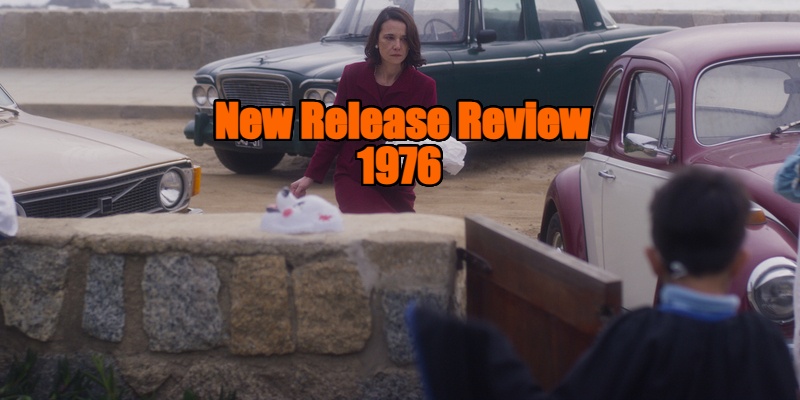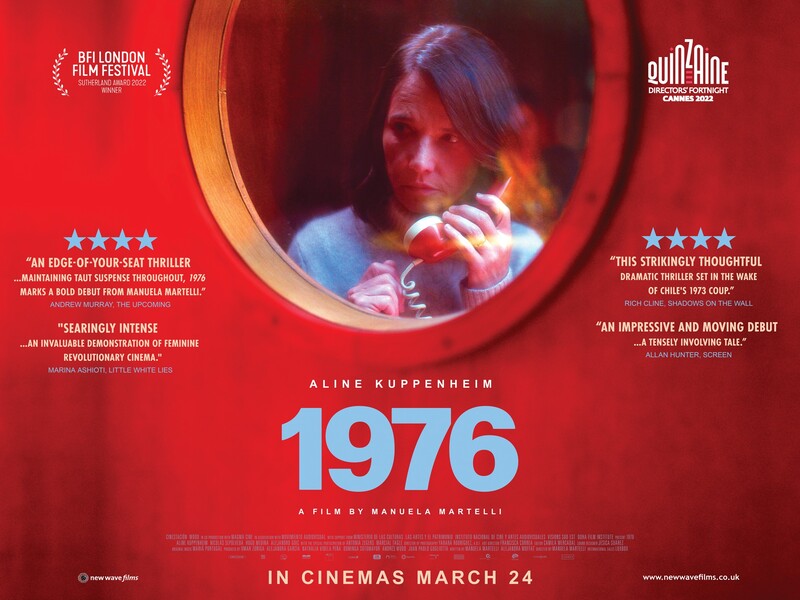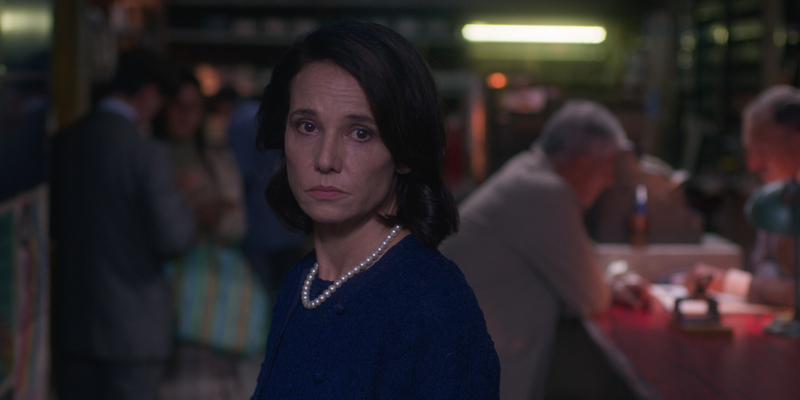
A woman's holiday is disrupted when she discovers a political fugitive
being harboured by a local priest.
Review by
Benjamin Poole
Directed by: Manuela Martelli
Starring: Aline Kuppenheim, Nicolás Sepúlveda, Hugo Medina, Alejandro Goic, Amalia Kassai

1976, Manuela Martelli's (with writing duties shared by
Alejandra Moffat) gorgeous and sinister feature length debut takes
place during the third year of Pinochet's reign as the de facto dictator
of Chile. Via the Caravan of Death and the secret police's Villa Grimaldi
(the head of which was later sentenced to more than 300 years in prison
for being evil), Pinochet made Chile his sultanate: a paranoid regime
where hundreds were disappeared, thousands were tortured, and all else
lived in the shadow of this complete piece of shit. Perhaps this is why,
in pantone contrast, Martelli's film opens with a scene implicating and
using vivid, unnatural colour. We meet Carmen (Aline Küppenheim) in
a boutique DIY store as she instructs a mixing technician as to the exact
shade of paint she requires. In fragmented close ups and tilted angles we
see hands pointing out a coral sky in a glossy brochure, the camera
panning to a screen filling shot of blue paint dribbled into churning
shade of pink. Eschewing the grammar of establishing shots, the close ups
are disembodied and, as an index, we are forced to listen closely to the
shared dialogue... along with the disruptive events occurring somewhere
outside the shop: "They are taking me"/"Shut up motherfucker." The film's
title locates us in the relatively early days of Pinochet's regime, where
the bourgeois patrons of bijou decoration stores were perhaps one step
removed from the encroaching threat, and blissfully unaware of forthcoming
events. "What was that?," Carmen asks (now revealed as a well-heeled,
attractive woman of a certain age). "Something in the street." the
assistant desultorily replies.

Carmen requires the paint for her project redecorating the family beach
home. After all, she needs something to get on with. Her husband is a
doctor with certain affiliations and therefore Very Busy, while her
children are grown up. The patriarchal infrastructure has prevented Carmen
from being a doctor herself, but in between comparing swatches of material
and perusing design journals, she busies herself and helps the less
fortunate by voluntarily reading to the blind. As time rich and generous
Carmen is, however, she wasn't counting on the arrival of the severely
wounded Elías (Nicolás Sepúlveda), whom the local Catholic priest
asks her to harbour and care for...

Soledad Rodríguez's cinematography is so sumptuous and textured it
is almost as if you could reach into the screen and touch it, and it
renders the world of 1976 vividly heightened. This visual
intensity is integral to the film's atmosphere of paranoia, which develops
exponentially: upon deciding to keep Elías and her role in his
recuperation a secret, Carmen becomes complicit in an adumbrate world of
resistance survival. What began with dressing wounds escalates to fraught
police stops and meetings where bizarre code words are swapped as a manner
of establishing trust. In this febrile context, what impresses so deeply
about Martelli's filmmaking is how perniciously light the potentially
fatal situations and menacing ambience are worn; a mean synth score is
felt rather than heard, and interactions with friends/threats are
ambiguous non-sequiturs. Likewise, the psychological development afforded
to Küppenheim's character (Martelli is a veteran actor herself) is
carefully applied and utterly convincing - perhaps a lesser filmmaker
would be tempted to patronise the loneliness of Carmen at the expense of
subtlety, and the stoic bravery of her real-life counterparts.

But then, as the film implies via soft soap police questions and other
hints, perhaps Carmen, with all her status and her husband's links to
local government is never really in true danger at all. Certainly, the
film contrasts the lux interiors of Carmen's beach house with the poorer
suburbs of Santiago, with its high rises of unforgiving grey cement and
cracked walkways. The camera looms and peers as it follows Carmen through
these uncertain milieus with transitions as sharp as a blade cutting
between moments. Martelli films her heroine in alienated close ups, in
reflection and through glass (the film's poster introduces this motif).
Carmen is herself ultimately intangible, a mark who may be being used by
either side; like the poured paint of the opening, she is another facet in
the blood red blend of Pinochet's rule.

1976 is in UK cinemas and on Curzon
Home Cinema and BFI Player from March 24th.

